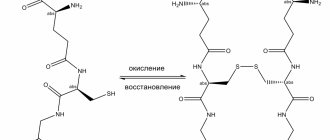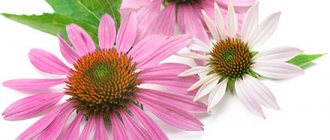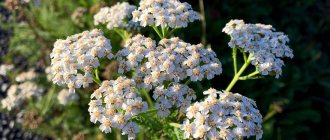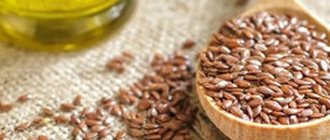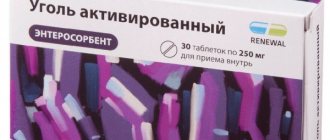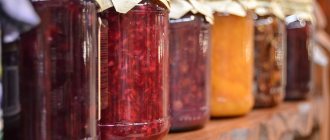Hawthorn is a tall shrub from the Rosaceae genus. It grows in temperate latitudes and grows wild in North America and Eurasia. On the territory of the Russian Federation, two types are most common: large-fruited hawthorn and blood-red hawthorn (popularly known as the so-called garden hawthorn, the benefits and harms of which will be discussed). No less famous is the black hawthorn, which grows in the Czech Republic, Hungary and the Balkan Peninsula.
It is a valuable medicinal plant, planted for decorative purposes, and is considered a good honey plant.
Wild hawthorn berries were used for health benefits back in Ancient China and Asia, first to treat diarrhea, and then to improve the functioning of blood vessels and the heart. Cultivated plant species were bred in the 16th century.
What does hawthorn help with and how is it useful, how to take it correctly and to whom herbal medicine with plant preparations can cause harm, read our new article.
Pharmacodynamics and pharmacokinetics
Pharmacodynamics
The fruits contain triterpene compounds, amino acids , carotene, flavonoids ( hyperoside , quercetin ), ascorbic acid , organic acids, microelements Cu , Mn , Fe , Zn , vitexin , fatty oil. The beneficial properties of hawthorn fruits include the ability to provide cardiotonic (toning the heart muscle and increasing its contractions, at the same time reducing excitability), sedative and antispasmodic effects, normalizing vascular tone and increasing blood circulation, which makes it possible to use it in the treatment of heart diseases. In addition, it exhibits a hypotensive effect and normalizes coagulation parameters. It was also found that hawthorn preparations improve the oxygen supply to brain neurons.
Cardiotonic and antispasmodic properties are due to the content of triterpene compounds and flavonoids . Triterpene compounds also have an antiatherosclerotic effect. Having high efficiency and low toxicity, the drugs are widely used in the treatment of many conditions, including in children. Indicated for vegetative neuroses, tachycardia , vascular atherosclerosis , high blood pressure, insomnia , and menopausal disorders. The drugs reduce the excitability of the central nervous system , but do not have a general inhibitory effect and increase the sensitivity of the heart muscle to cardiac glycosides.
Pharmacokinetics
No information available.
Possible side effects
Systemic side effects during the treatment of hawthorn are not excluded, since its bioactive substances are absorbed into the blood and distributed to all organs and tissues. They are observed rarely, usually when the dosage regimen determined by the doctor is not followed or when the decoction, tea, or infusion is inappropriately taken. Systemic reactions are clinically manifested as follows:
- nausea;
- increased heart rate;
- drop in blood pressure;
- drowsiness;
- dizziness;
- headache;
- flatulence;
- disorders of intestinal motility.
Local adverse reactions are manifested by angioedema and irritation of the skin and mucous membranes. If any negative effect occurs, you should stop using hawthorn and seek medical help to eliminate symptoms.
Hawthorn fruits, instructions for use (Method and dosage)
How to take hawthorn fruits? This depends on the form of release of the drug.
Ready-made hawthorn tincture is prescribed to adults, 20-30 drops up to 4 times a day. The drug is taken before meals. Treatment is prescribed for 25-30 days.
Children over 12 years old – 10 drops, diluted in 0.25 glasses of water, taken 3 times a day in the same course.
It must be remembered that the alcohol content in a single dose for adults is 0.45 g, and for children - 0.23 g. During treatment, you must be careful when driving.
Hawthorn fruit extract in tablets is used 1-2 tablets 3 times a day, dissolving in the mouth. The course of treatment is up to 1 month. A repeat course is prescribed by the doctor. For use in adults only.
An infusion of hawthorn fruits is prepared from packaged medicinal raw materials. To do this, take 1 tbsp. crushed fruits, pour a glass of boiling water. It is necessary to insist for 30-40 minutes. After filtering, take 30-50 ml 3 times a day before meals.
A decoction of hawthorn fruits can also be prepared independently: 1 tablespoon of fruits is poured into 1 glass of water, heated in a water bath for 15 minutes. After cooling, filter and bring the volume to 200 ml with water. Take 100 ml 2 times a day.
Contraindications
Hawthorn flowers and fruits are not prescribed by doctors to patients with hypersensitivity to them. Taking infusions and decoctions from medicinal plants is not recommended for people predisposed to the development of allergic reactions. It is not used in pediatrics. The exception is fees intended specifically for children. Plants from their composition undergo additional purification from harmful impurities.
An absolute contraindication to treatment with hawthorn is persistently low blood pressure. Most manufacturers warn against taking this herbal remedy during pregnancy and breastfeeding. But some include hawthorn in their preparations to enhance lactation.
Analogs
Level 4 ATX code matches:
Vazonat
Phosphaden
Preductal
Meldonium
Angiosil Retard
Ranexa
Lily of the valley tincture
Neocardil
Rimecore
Triductane
ATF-Long
Hawthorn tincture
Triductan MV
Trimectal MV
Trimectal
Neoton
Predisin
Trimetazidine
Tivortin Aspartate
Metamax
Liquid extract and dry extract of hawthorn.
Reviews about Hawthorn Fruits
The use of hawthorn fruits is indicated for vegetative disorders, spasms of cerebral vessels accompanied by headaches , arrhythmias , nervousness and anxiety . Hawthorn fruits contain a large amount of magnesium, so its use for headaches and heart failure is justified. Hawthorn preparations are used independently and in combination with other herbs. So, it is part of the dietary supplement Morpheus , the collection Fitosedan , Antisress , Novo-Passit .
There are not many reviews about the drug. Those who have taken this drug note a calming effect, a decrease in tachycardia and arrhythmia . All patients had improved sleep and pain in the heart area disappeared.
- “... Prescribed for atrial fibrillation in addition to an antiarrhythmic drug. I took it for a month. It became much easier - there were no attacks for a month, the pressure dropped slightly, it became easier to breathe.”
- “... I was worried about attacks of paroxysmal tachycardia and they prescribed me a tincture. I drank for a month, then took a break and continued treatment with a decoction that I prepared myself, since I did not tolerate alcohol well, it seemed to me that it was stimulating.”
- “... I have an initial form of hypertension, a decoction of this plant, which I make myself, helps very well.”
- “... I took three courses of decoction. It helped a lot: shortness of breath, heartbeat decreased, blood pressure returned to normal. I noticed that my legs and arms, which were constantly cold, did not even begin to freeze.”
More often there are reports of the use of complex preparations of plant origin, which include the fruits of this plant.
Features of a medicinal plant
Hawthorn is a deciduous, semi-evergreen, tall shrub (rarely a small tree) from the Rosaceae family.
In the wild, it occurs either singly or in compact groups. His “favorite” places are forest edges, clearings, clearings, and screes. In excessively moist soil, hawthorn roots can rot, so it grows mainly in deep, moderately moist and well-drained soil. The perennial plant is unpretentious, so homeowners willingly use it for decoration. Delicate hawthorn flowers are attractive in spring, and tart red fruits are attractive in autumn. Both of them have medicinal properties. So, the plant not only decorates gardens, but is also used to combat various diseases.
Price of Hawthorn Fruits, where to buy
It is not difficult to purchase any medicinal forms of hawthorn at a pharmacy. The cost of hawthorn fruits in packs of 75 g ranges from 50-75 rubles, plant raw materials in filter bags have the same price. Hawthorn tincture can be purchased for 8-11 rubles, and lozenges for 170-185 rubles.
- Online pharmacies in RussiaRussia
- Online pharmacies in UkraineUkraine
ZdravCity
- Hawthorn fruit raw materials pack 50g Ivan-tea JSC
80 RUR order - Hawthorn fruits pack 75gJSC Krasnogorsk plant LRS
75 rub. order
- Hawthorn fruits pack 50 g Zdorovye ZAO
72 RUR order
- Hawthorn fruit 3g filter pack. 20pcs JSC Krasnogorskleksredstva
96 RUR order
- Hawthorn fruit powder filter bag 1.5g 20pcs LLC RU
67 RUR order
Pharmacy Dialogue
- Hawthorn fruits (75g) Krasnogorskleksredstva
75 rub. order
- Hawthorn fruits (f/p 3.0 g No. 20) Krasnogorskleksredstva
80 rub. order
- Hawthorn fruits (100g) Fitofarm
46 RUR order
show more
Pharmacy24
- Hawthorn fruits 4 g N20 PrAT "Liktravy", m.
Zhytomyr, Ukraine 25 UAH. order - Hawthorn fruits 50 g PrAT FF "Viola", Ukraine
19 UAH order
- Hawthorn fruits 140 g PrAT "Liktravy", m. Zhytomyr, Ukraine
24 UAH order
How to use berries
Dried berries are already ready for use - they are equally useful as long as they are stored in the house. Tinctures, teas, and vitamin solutions for external use are prepared from the dried product.
Tinctures and tea can be drunk or pre-infused so that the solution is more concentrated. Another option is to grind the berries using a coffee grinder and then pour boiling water over them. After the mixture has infused, it is filtered or drunk finely ground. A cold, fortified drink is useful in summer; it also quenches thirst well.
